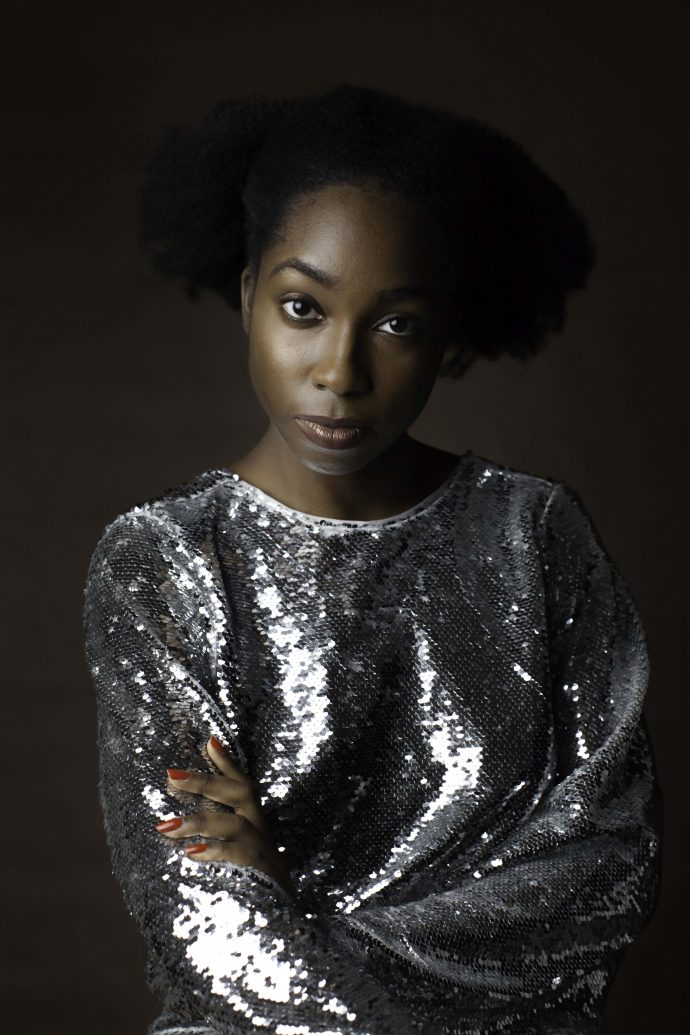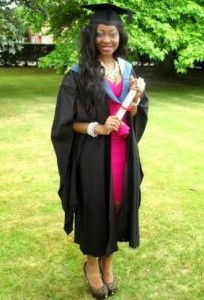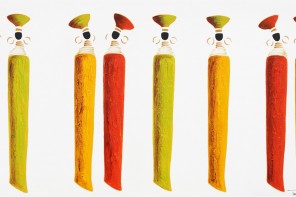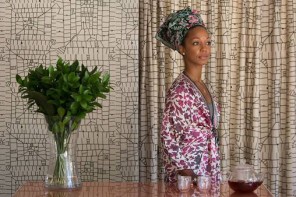Written by Joan Yombo; Photos by Medina Dugger; Translated in english by Isabella Muma
At 28 years old, this young repat has a media career that could make many of us envious: MTV, Zikoko, Konbini Nigeria, CNN… A good track record for someone who studied economics and started as a consultant in a gas and energy company. She is a free spirit that uses passion as fuel. After going through start-ups and big media companies, she now aspires to be the captain of her own ship; one that will shake up the Nigerian media landscape. Full of ambition and talent, she is obsessed with only one thing: creating content that is relevant and adaptable to modern African women…
FROM LONDON TO LAGOS
When she completed her studies in economics, there was nothing suggesting that Damilola Odufuwa would work in the media industry, yet she admits that she has always had a strong interest in pop culture, media and music, but not to the point of making it a career: ” African parents don’t understand certain jobs. Unconsciously, I was not considering a career in any of these areas. They were just hobbies.” Being a good student, Damilola quickly obtained her Master’s degree in International Finance and Economics in London: “It was the right path for me. I liked the analytical aspect of economics, which allowed me to understand the structure of the business world.” This young woman then had a very clear plan: work at the World Bank once she graduated, in order to have an impact. But she found herself working as a consultant in a gas and energy company: “I quickly felt miserable. I, who wanted to make a positive impact in this world, was working for a company that was polluting the planet, and I quickly realized that I would not be there for long, I had to find something else.” In the course of a conversation, one of her friends pointed out her permanent interest in in pop culture and musical news. It was the click! Damilola began to think that, it wouldn’t be a bad idea to turn her passion into a career. She started looking for opportunities in the entertainment industry, and the doors quickly opened. In 2015, she began an internship at Universal Music in London, where she worked as a data analyst in the Brands & Partnerships division: “It was at that moment that I understood the benefits of having studied economics. My role was to collect figures on the behaviour of music consumers. For instance, who is the audience of such a musician? What are they interested in?, etc. I understood that there is a business side to everything, even in the artistic field. I could then clearly bring together my skill (analysis) and my passion (art and culture)”
Very quickly, a second door opened for the young woman, and the same year, she found herself propelled on MTV, in order to work for the famous Shuga series: working in the media, educating people and having an impact. It was the winning trio for Damilola. However, the young woman is a free spirit. After 9 months of adventure at MTV, she decided to return to Nigeria: “I realized that I wanted to do more. I wanted to tell African stories, and I wanted to do it in my country. I wanted to have a better impact on the continent.” She went back to Nigeria, and became the editor-in-chief of Zikoko, an “African buzzfeed”. Sort of. “In one year, we became a prominent reference in Nigeria with several millions of readers”. In September 2016, she was approached by Konbini to launch and install its first African branch. Damilola was head of editorial, and set out to find Africans “who do cool things on the continent”. Damilola played this role to perfection for nearly two years, before finding herself at the head of CNN’s Social Media Africa branch, where she managed to increase the number of Instagram followers to 25000 at the end of the first month. When asked how she manages to perform so well so quickly, she answers: “I know and understand what the African millennials want, I know what is important to them, and therefore I know what the African media must sell.”
STRONG VIEWS
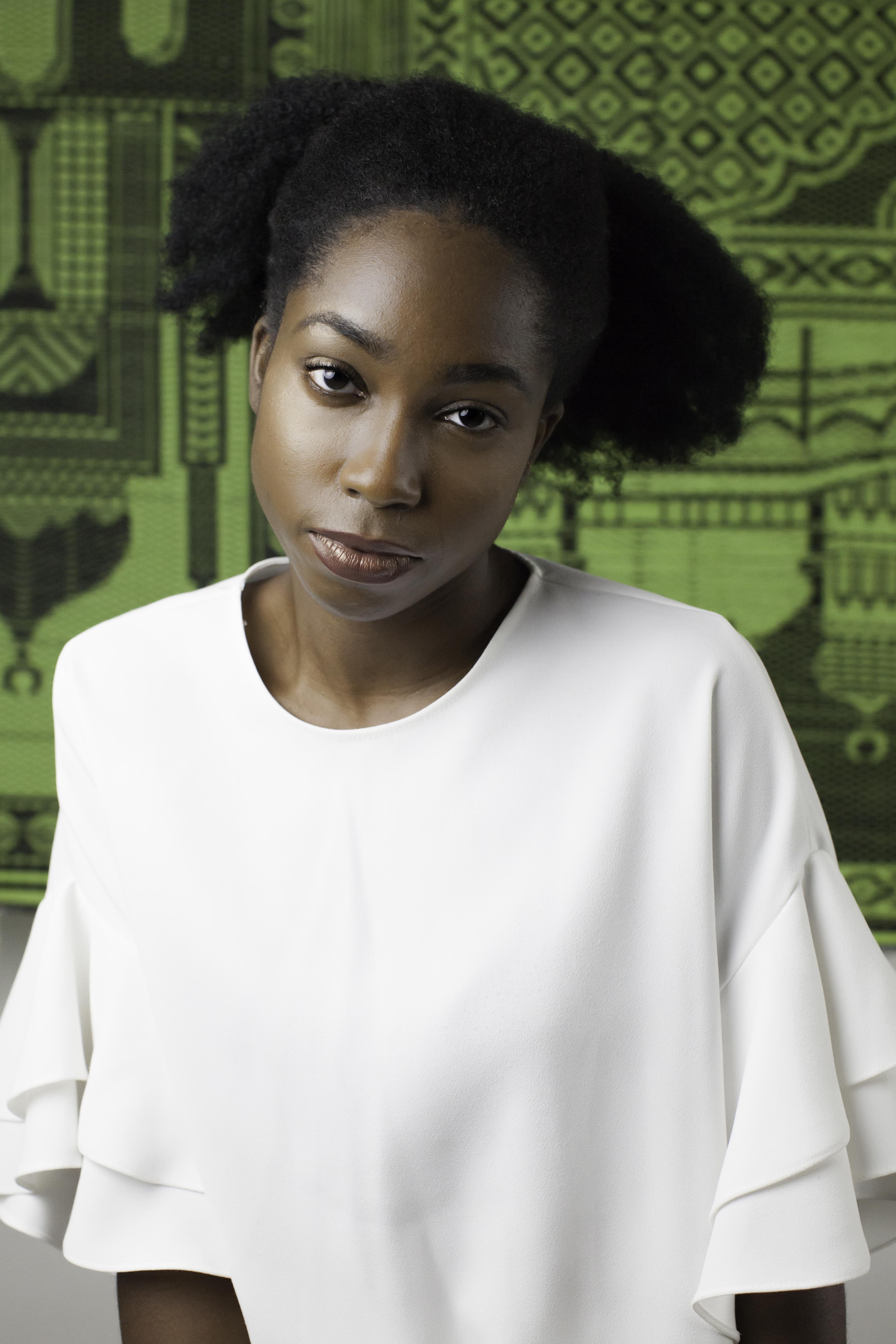 Damilola Odufuwa is known for not keeping her tongue in her pocket, especially when it comes to defend individual freedoms. This can quickly become complicated to manage when you have lived for a long time in Europe and now live in a society where it is inappropriate to question the established order. Values and beliefs are not the same. The young woman confirms that things are not always simple: “I would be lying if I didn’t say that it is very difficult for me from every point of view. I know that every African country has its share of inconsistencies, but Nigeria is a very special country. There is a “madness” here that only those who live here can understand and explain. I come from a rather tolerant family, but the Nigerian society is very conservative and very religious. Nevertheless, I tend to have a problem with religion. I do not find it to be a source of tolerance. On the contrary, it stigmatizes and it’s judgmental about people.”
Damilola Odufuwa is known for not keeping her tongue in her pocket, especially when it comes to defend individual freedoms. This can quickly become complicated to manage when you have lived for a long time in Europe and now live in a society where it is inappropriate to question the established order. Values and beliefs are not the same. The young woman confirms that things are not always simple: “I would be lying if I didn’t say that it is very difficult for me from every point of view. I know that every African country has its share of inconsistencies, but Nigeria is a very special country. There is a “madness” here that only those who live here can understand and explain. I come from a rather tolerant family, but the Nigerian society is very conservative and very religious. Nevertheless, I tend to have a problem with religion. I do not find it to be a source of tolerance. On the contrary, it stigmatizes and it’s judgmental about people.”
Damilola is rather optimistic about sexual freedom and the place of the LGBT community in Nigeria. Although the Nigerian society is not yet ready to address these types of topics head-on, the conversation is gradually beginning to emerge, particularly on social networks. “Have you heard of Bobrisky? He is one of the first transsexuals in Nigeria. He is very controversial, but at the same time people love and follow him/her, just like any other celebrity. This is an interesting phenomenon to observe. It creates a lot of debates on the web, and I think that similar situations will happen more and more, because these are issues that also concern the new generation.”
Discover DJ Bizi Brown, ambassador of African culture in Germany
Beyond all this, the real challenge for our media girl is simply to live as a woman in Nigeria. As in many African societies, men are given more respect than women. Micro-aggressions are daily occurrences. We remember the example given by the author Chimamanda Ngozi Adichie in her speech[1] when she mentioned the fact that if a woman is accompanied by a man and she pays the bill, the man automatically gets the receipt. These daily frustrations pushed Damilola to launch ‘Wine and Whine’, a support group for women: an intimate space where they can express themselves about all the challenges they face in the Nigerian society (Wine refers to the conviviality and pleasure of having a drink together). Every month, these women gather around a cocktail or aperitif to talk about their challenges and explore possible solutions, instead of always complaining: “It’s a resolutely feminist group. We want to shake things up in society and create change. It will not work with people who are not comfortable with the notion of feminism.”
And when it comes to feminism, Damilola is inexhaustible, both in terms of projects and vision. She wants to create an African, feminine and progressive medium that will address all the issues that current feminine media do not cover (enough): sexuality, wage inequality, professional career, etc. The young woman says she wants to fight the tendency to present the African woman from a single angle, that simplifies her, whereas she is complex, plural, influenced by diverse and varied experiences: “I am a feminist, I like to take care of my natural hair, I like to dress, I like to wear heels, but I don’t like to wear make-up… Likewise, I am a feminist, and I want to get married. I just don’t want to be reduced to marriage. If I create a medium tomorrow, it will address the subject of marriage, but in a different way.” Damilola castigates the content of certain women’s publications, which she considers retrograde and degrading: “How can we still say in a media today, that women must cook for men in all circumstances when the majority of African women work, because of the economic situation, and therefore have very complicated schedules just like their male counterparts? Even if they do not work in the formal sector, they bring money into the household!”
When we talk about people who dissociate themselves from feminism because it is depicted as aggressive towards men, Damilola is uncompromising: “People who are afraid of feminism are those who have not tried to understand what it really is. The definition of feminism is simple and Chimamanda Ngozi Adichie summed it up brilliantly: economic, social and political equality of the sexes. Feminists do not hate men, they denounce the marginalization of women, and the lack of respect for their rights. It’s not hard to understand. Feminists are accused of being extremists. Let me take the example of religion: Today, the Catholic religion is marred by pedophile scandals. But this does not prevent people, especially Africans, from continuing to practice this religion. The same is true of Islam, which is exploited by terrorists. We know very well, however, that Islam does not advocate the destruction of others, and in fact, people still practice this religion. Why do we not apply the same tolerance to feminism? Each movement has an extremist side, but that does not call into question the very essence of the movement.”
Find out how African consume radio on the continent.

